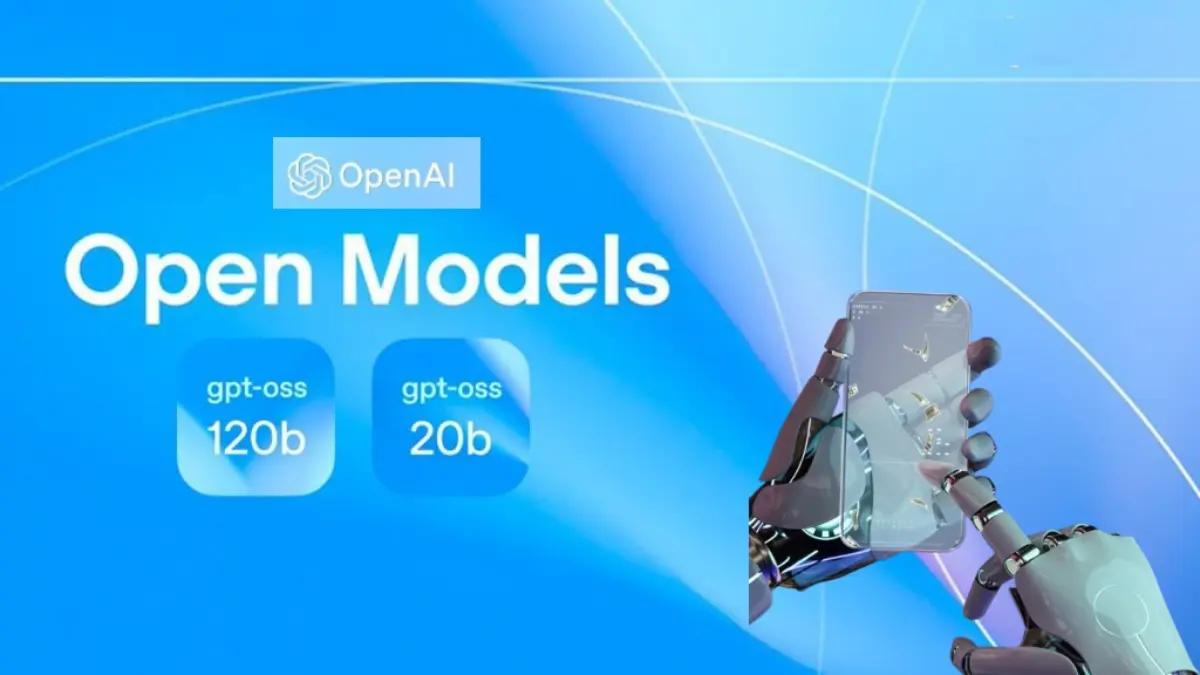OpenAI has announced the release of GPT-OSS, a family of two open-weight language models—gpt-oss-120b and gpt-oss-20b—under the permissive Apache 2.0 license, marking its first major open-weight offering since GPT-2. The announcement, published on August 5, 2025, emphasizes that these models deliver state-of-the-art reasoning performance at a fraction of the cost associated with proprietary alternatives, and crucially, can be deployed on local and cloud infrastructure alike.
Technical Architecture
The GPT-OSS series leverages a Mixture-of-Experts (MoE) Transformer architecture to balance performance and efficiency.
- gpt-oss-120b: 117 billion total parameters, activates 5.1 billion parameters per token, employs 128 experts (4 active per token), and spans 36 layers.
- gpt-oss-20b: 21 billion total parameters, activates 3.6 billion parameters per token, employs 32 experts (4 active per token), and spans 24 layers.
Both models use alternating dense and locally banded sparse attention patterns and grouped multi-query attention for memory-efficient inference .
Performance and Safety Evaluations
OpenAI reports that gpt-oss-120b matches or exceeds the performance of its proprietary o4-mini model across a variety of internal benchmarks, including competition coding (Codeforces), general problem solving (MMLU and HLE), and health-related queries (HealthBench). Meanwhile, gpt-oss-20b outperforms the older o3-mini on competition mathematics (AIME 2024 & 2025) and health tasks, despite its smaller size .
Furthermore, external experts reviewed the safety methodology, confirming that it upholds the same rigorous safety standards as OpenAI’s closed-weight offerings. OpenAI’s Safety Advisory Group also adversarially fine-tuned gpt-oss-120b to probe for high-risk capabilities (biological, chemical, cyber), finding no evidence that the open-weight release significantly advances these threat vectors beyond existing open models.
Accessibility and Deployment
A key milestone of GPT OSS is local execution:
- gpt-oss-20b can run on a high-end laptop with a modern GPU, enabling offline or on-premises applications.
- gpt-oss-120b is optimized to run on a single enterprise-grade GPU, making it accessible to mid-sized organizations without massive compute clusters.
- Data sovereignty & privacy: By keeping all inference on-premises, GPT-OSS minimizes regulatory and security risks—critical for sectors like finance, healthcare, and government.
- Seamless integration: Pre-configured support in Hugging Face Transformers (v4.55.0) and containerized deployment guides from Northflank make spinning up GPT-OSS as straightforward as running a local server.
“With GPT OSS, we’re empowering developers and organizations to harness cutting-edge AI as fully owned, customizable assets,” said Sam Altman, CEO of OpenAI. “This release marks a turning point in democratizing access to advanced language models while upholding the highest standards of safety and performance.”
By open-sourcing these powerful models, OpenAI aims to foster a more vibrant ecosystem of innovation—encouraging bespoke fine-tuning, new plug-ins, and creative applications that push AI forward. Developers and enterprises can download the models immediately from OpenAI’s GitHub repository and begin experimenting with local inference, custom integrations, and specialized safety evaluations.
Getting Started
CometAPI is a unified API platform that aggregates over 500 AI models from leading providers—such as OpenAI’s GPT series, Google’s Gemini, Anthropic’s Claude, Midjourney, Suno, and more—into a single, developer-friendly interface. By offering consistent authentication, request formatting, and response handling, CometAPI dramatically simplifies the integration of AI capabilities into your applications. Whether you’re building chatbots, image generators, music composers, or data‐driven analytics pipelines, CometAPI lets you iterate faster, control costs, and remain vendor-agnostic—all while tapping into the latest breakthroughs across the AI ecosystem.
Developers can access [GPT-OSS-20B](https://www.cometapi.com/claude-opus-4-1-api/) and GPT-OSS-120B through CometAPI, the latest models version listed are as of the article’s publication date. To begin, explore the model’s capabilities in the Playground and consult the API guide for detailed instructions. Before accessing, please make sure you have logged in to CometAPI and obtained the API key. CometAPI offer a price far lower than the official price to help you integrate.
